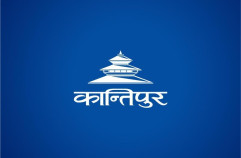Free Haliya awaiting rehabilitation for 16 years

We use Google Cloud Translation Services. Google requires we provide the following disclaimer relating to use of this service:
This service may contain translations powered by Google. Google disclaims all warranties related to the translations, expressed or implied, including any warranties of accuracy, reliability, and any implied warranties of merchantability, fitness for a particular purpose, and noninfringement.




It has been 16 years since Haliya Mukti was announced on Friday. Even though it has been 16 years since the government of Nepal announced the liberation of Haliyas on 21 August 2065, the freed Haliyas are complaining that they are forced to live a difficult life due to lack of proper rehabilitation.

The Haliya practice was especially prevalent in three districts of Sudurpaschim and Karnali provinces. In this way, most of the Haliyas in 12 districts who have been declared free have been rehabilitated, while some have not yet been rehabilitated.
Ishwar Sunar, President of National Free Haliya Samaj Federation of Nepal, said that out of 16,953 families certified by the Nepal government, only 13,546 families in 12 districts have received the rehabilitation package.
According to him, nine percent of the families have not received the final installment of the rehabilitation package and about 20 percent of the freed Haliya are still waiting for rehabilitation. "All those who got identity cards have not been rehabilitated, there are still some who are yet to get identity cards", he said, "even the freed halias who have been rehabilitated are finding it difficult to make a living". There is no employment, education and health issues are also a problem.'
According to President Sunar, the still free Halia is forced to live a difficult life as there is no progress in the restoration work according to the five points of agreement reached between the government of Nepal and the Halia Federation.
He said, 'Despite 16 years of the recent declaration of liberation, the work committed by the Nepalese government has not been completed. As the resettlement period is getting longer, freed Haliyas who are waiting for resettlement are facing more problems . There has not been proper management of their residence, which has led to the situation of having to live in Haliya just to eat again.'
Experts in this area say that due to the lack of implementation of issues related to education, health, employment, sustainable livelihood, social empowerment, inclusion, the free Haliyas are not living a dignified life and many free Haliya families are forced to live in Haliya again.
Ganesh Bishwakarma, the founding president of the National Dalit Network, said that it was a matter of concern that all the freed Haliyas could not be judicially restored for years. He said, 'The five-point agreement, 10-point recommendation and the report of the five-member fact-finding committee formed to study the situation of the free Halia, Kamaiya, Kamalari and Harwacharwa communities need to be implemented immediately. All three levels of government should work in an integrated manner for the sustainable and just restoration of free Halia.'
Hari Sripaili, a member of the study committee on the situation of the free Halia, Kamaiya, Kamalari and Harwacharwa communities formed by the federal government, and Halia rights activist Hari Sripaili says that it will not take time to restore the remaining free Halia if the government shows caution.
'We have mentioned the real situation of the free Halia, Kamaiya, Kamalari and Harwacharwa communities in the report made after the study . If it is implemented, it will help in the restoration of freed Haliya', he said, 'based on the report of the study committee, the Ministry of Land Management, Cooperatives and Poverty Alleviation has prepared a procedure and action plan related to restoration, but it has not been passed . After passing the procedure, it will not take time for the restoration of the remaining free haliyas.'
Sudurpaschim Province has the highest number of free haliyas . Under the pressure of the concerned organizations, the provincial government and some local levels have also passed the procedures related to the restoration of free halia. Now the Federation President Sunar insists that the restoration work should be carried forward accordingly.
'There are three levels of government in the country . If everyone worked in an integrated way, it would be easy to solve the problem . At our request, the provincial government and some local levels have also made procedures, now they should emphasize their implementation', he said.
 प्रकाशित : भाद्र २१, २०८१ २२:५१
प्रकाशित : भाद्र २१, २०८१ २२:५१

 २२.१२°C काठमाडौं
२२.१२°C काठमाडौं














